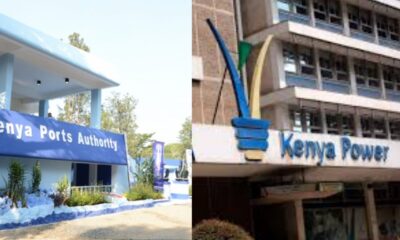Not much factual information is in the public domain, as it should, on how the government, Kenya Airports Authority (KAA), a public entity, and Kenya Airways (KQ), a public-private enterprise, want to forge the proposed joint operation partnership. That is, apart from the commentary by Kenya Airways board chairman Michael Joseph in the Sunday Nation on March 17. Inadequate factual information is largely to blame for what may be unnecessary controversies surrounding the issue, culminating in violent demonstrations by KAA staff opposed to the proposal.
Some quarters blame the negative reactions to the plan on “informed people who should understand what is being done but choose to misinterpret and peddle rumours and innuendos of a conspiracy theory”. Others attribute the same to “ill-informed commentators”. Unfortunately, until the government opens up and shares with the public details of the proposal, the unhelpful “rumours and innuendos” will most likely continue.
Government, KAA and KQ should take measures to extinguish the “premature speculations” on what is perceived as forced courtship for an arranged marriage. Moreover, the behind the curtain nuances will only heighten public curiosity and speculation on what will befall KAA staff and assets when the deal is signed.
Measured openness and information sharing will no doubt help manage public expectations on a matter that has now galvanised considerable interest.
The clarifications by Mr Joseph suggest the “KQ initiative”, that the government supports through Cabinet approval, has a number objectives. First, to reposition Nairobi as a major African hub for business and tourism. Second, to increase the importance of Jomo Kenyatta International Airport (JKIA) in terms of passengers and other airlines by improving facilities, terminals, runways and ancillary services. Thirdly, “to improve the financials of KQ so that it could expand both its fleet and the network — enabling it to offer more destinations to both Kenyans and visitors, and compete on a level playing field with other airlines such as Ethiopian, Qatar, Turkish, Emirates and RwandAir.”
From that, it is clear that the “KQ initiative” is essentially about itself, JKIA and Nairobi as a financial and business hub. There is nothing in it at all for other airports in the country that KAA, as a public entity, is mandated to develop and maintain— including Mombasa, Kisumu, Malindi, Eldoret, Kitale, Lokichogio, Lodwar and Wajir. Clearly the initiative lacks national vision, is narrow in scope, selective, and primarily intended to hand over control of JKIA and Nairobi air travel hub to KQ whose majority shares are in private ownership.
There are two fundamental issues that are advertently or inadvertently glossed over. First is the questionable legitimacy of the form and manner in which architects of the KQ proposal intend to transfer ownership and control of public assets vested in KAA to KQ private shareholders. Second is why and how the financially handicapped KQ would accomplish the objectives stated more efficiently than the financially stable KAA.
Mr Joseph, who many of us admire greatly for what he achieved for Safaricom, also appears overly worried about “comments from people, politicians, union leaders and business people”. But when people appear to covet and imagine encroaching on public assets legally entrusted to the jurisdiction and custody of a public entity like KAA, they invite onto themselves such negative comments. Interrogative comments are necessary and justified for public accountability. In any case, in a democracy, open and vibrant interrogations help ensure credibility and trustworthiness of public policy and decisions. The ‘KQ initiative’ cannot be an exception.
For the avoidance of doubt, I must declare my total support for resuscitation and growth of KQ into a powerful regional player in global aviation. As such, even as other possible KQ rescue options are explored, I propose we also consider the one of “forward integrating” KAA with Kenya Airways.
Investopedia describes “forward integration” as a business model whereby a company expands and consolidates its business activities to include control of direct distribution or supply to the market of its core products or services. The company achieves this by moving down the value-chain, such as when a farmer takes control of retail grocery outlets where his produce is sold.
Whereas conveyance of travellers and cargo to and out of Kenyan airports rests with KQ and other airlines, KAA is legally vested with ownership, physical development and maintenance of airport facilities, and land assets on which they sit, throughout the country. In this context, “forward integration” would possibly entail KAA buying out KQ private shareholders, including KLM, at fair share market price. This would translate to KQ ownership structure of 52 per cent and 48 per cent, respectively, by KAA and the National Treasury. With that, KQ would revert to public entity status, to operate as an autonomous profit-centre subsidiary of KAA whose name could change to say Kenya Civil Aviation Corporation.
A vibrant KQ is vital to generate strategic cargo and passenger traffic for KAA to at least break even. Forward integration on its part would give KAA flexibility and capacity to perform its core business of facilitating, promoting and maximising passenger and cargo traffic volumes at all Kenyan airports, thereby growing Kenya’s civil aviation industry overall. Through forward integration the asset-rich KAA would also rub-on positive effect on KQ balance sheet.
Given KQ’s dismal performance with KLM on board, by shareholding and direct management participation, the often hyped about ‘strategic partnership’ with another international airline does not fly.
Finally, from national interest viewpoint, control of KAA and its counterpart Kenya Ports Authority through State ownership should not be compromised. Being responsible for the country’s critical entry and exit points, the two entities are more than economic investments; they represent vital national security interest.
Mr Syong’oh is a former Assistant Minister for Trade and Investment Affairs and Special Policy Adviser, Ministry of Foreign Affairs and International Trade [email protected]

 General News1 week ago
General News1 week ago
 Politics1 week ago
Politics1 week ago
 Business News1 week ago
Business News1 week ago
 General News7 days ago
General News7 days ago
 Business News23 hours ago
Business News23 hours ago




